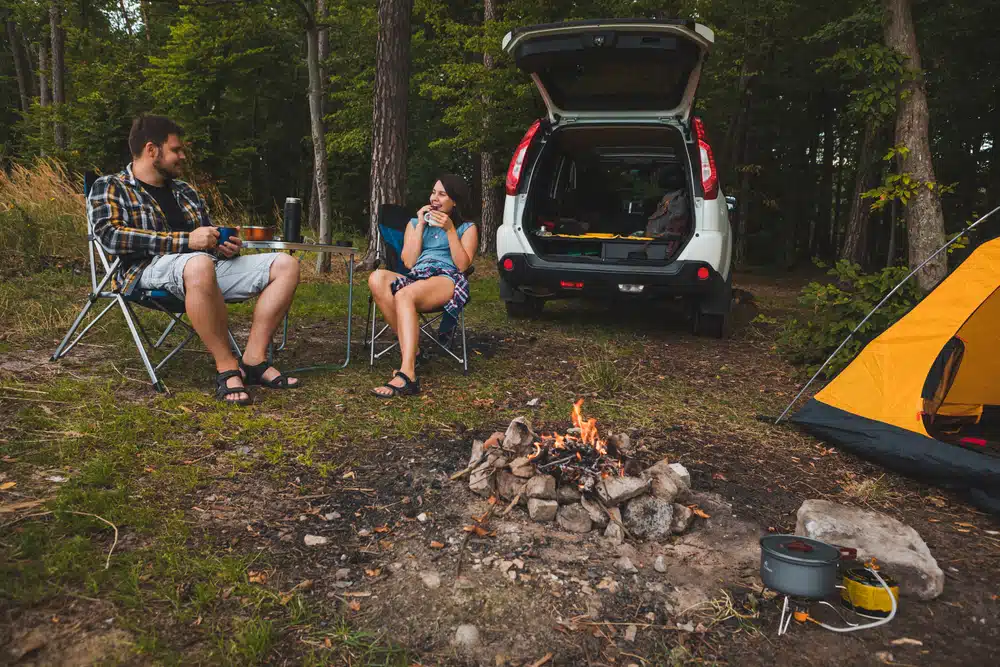Camping continues to be a major draw in New Hampshire, attracting both seasoned travelers and newcomers with options ranging from rustic tent sites to luxury glamping accommodations.
For many, the appeal is rooted in a desire to slow down, connect with nature, and spend time with family or friends.
Jerry Diorio of Auburn, a lifelong camper, has traveled across the United States in various forms of camping setups, from tents to a motor home equipped with modern conveniences.
“You go, relax, have a campfire and settle down,” Diorio told Union Leader during a stay at Danforth Bay RV Campground on Ossipee Lake in June. “No stress. No rush. If I were home right now, I’d be cutting the lawn. Here, I’m forced to relax.”
Diorio and his wife, Karen, have visited destinations such as Niagara Falls, Yellowstone National Park, and Mount Rushmore. They say the attraction remains consistent wherever they camp: time outdoors, scenic surroundings, and a break from daily routines.
In New Hampshire, camping generates more annual revenue from RV stays alone than skiing, hunting, or fishing.
The state offers hundreds of camping options, from White Mountain National Forest sites to resorts with amenities comparable to vacation properties.
Resources such as nhlovescampers.com, maintained by the New Hampshire Campground Association, provide free guides to help travelers select sites that match their interests.
Prime camping season runs from late spring through Columbus Day weekend, though some campgrounds operate year-round. Due to demand, especially in summer, securing preferred dates often requires booking up to 11 months in advance.
State parks offer diverse experiences. Lafayette Place Campground in Franconia Notch State Park is popular with hikers, while Umbagog Lake State Park in the North Country features remote island sites accessible by boat. Mollidgewock State Park offers riverside camping suited for paddling enthusiasts.
Privately owned parks also play a significant role in the sector. Friendly Beaver Campground in New Boston features pools, sports facilities, and trails, appealing to families seeking a safe, activity-filled environment.
“Camping in general is family-oriented,” said co-owner Roberta Charest. “You can just let the kids go around the campground. It’s a safe environment.”
Post-pandemic interest in camping has fueled demand for glamping accommodations. Jeremy Sprince, executive director of the New Hampshire Campground Owners Association, noted the rise of offerings such as hotel-style cabins, safari huts, and treehouses.
Alpine Garden Glamping in Bartlett, open since 2021, offers cabins with espresso makers and record players, an in-ground pool, and access to hiking trails in the nearby Bartlett Experimental Forest.
“We wanted to offer a more luxury camping experience. It’s been a hit,” said owner Brianna Classon.
For outdoor hospitality operators, the state’s broad range of offerings—from traditional tent sites to luxury retreats—illustrates the importance of catering to multiple market segments.
Families seeking low-cost vacations, adventure travelers, and luxury-oriented guests all find options in New Hampshire, supporting a diversified and resilient camping industry.


